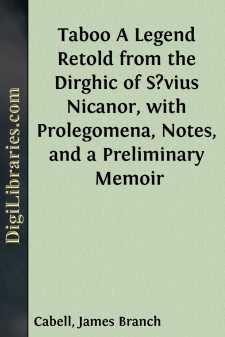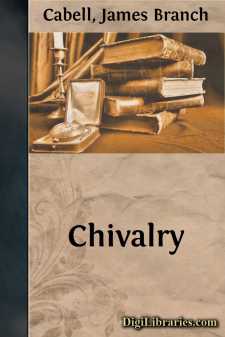Categories
- Antiques & Collectibles 13
- Architecture 36
- Art 48
- Bibles 22
- Biography & Autobiography 813
- Body, Mind & Spirit 142
- Business & Economics 28
- Children's Books 17
- Children's Fiction 14
- Computers 4
- Cooking 94
- Crafts & Hobbies 4
- Drama 346
- Education 46
- Family & Relationships 57
- Fiction 11829
- Games 19
- Gardening 17
- Health & Fitness 34
- History 1377
- House & Home 1
- Humor 147
- Juvenile Fiction 1873
- Juvenile Nonfiction 202
- Language Arts & Disciplines 88
- Law 16
- Literary Collections 686
- Literary Criticism 179
- Mathematics 13
- Medical 41
- Music 40
- Nature 179
- Non-Classifiable 1768
- Performing Arts 7
- Periodicals 1453
- Philosophy 64
- Photography 2
- Poetry 896
- Political Science 203
- Psychology 42
- Reference 154
- Religion 513
- Science 126
- Self-Help 84
- Social Science 81
- Sports & Recreation 34
- Study Aids 3
- Technology & Engineering 59
- Transportation 23
- Travel 463
- True Crime 29
Taboo A Legend Retold from the Dirghic of S?vius Nicanor, with Prolegomena, Notes, and a Preliminary Memoir
Description:
Excerpt
MEMOIR OF SÆVIUS NICANOR
Saevius Nicanor Marci libertus negabit
"She went to the tailor'sTo buy him a coat;
When she came back
He was riding the goat."
Sævius Nicanor, one of the earliest of the Grammarians, says Suetonius, first acquired fame and reputation by his teaching; and, besides, made commentaries, the greater part of which, however, were said to have been borrowed. He also wrote a satire, in which he informs us that he was a free man, and had a double cognomen.
It is reported that in consequence of some aspersion attached to the character of his writing, he retired into Sardinia, and, says Oriphyles, devoted the remainder of his days to the composition of sardonic literature.
Ackermann reads "Sardinian." It is not certain whether the adjective employed is σαρδανιος or σαρδανικος. I suspect that Oriphyles here makes an intentional play upon the words.
He is quoted by Macrobius, whereas divers references to Nicanor in La Haulte Histoire de Jurgen would seem to show that this writer was viewed with considerable esteem in mediæval times. Latterly his work has been virtually unknown.
Robert Burton, for the rest, cites Sævius Nicanor in the 1620 edition of The Anatomy of Melancholy (this passage was subsequently remodeled) in terms which have the unintended merit of conveying a very fair notion of the old Grammarian's literary ethics:—
"As a good housewife out of divers fleeces weaves one piece of cloth (saith Sævius Nicanor), I have laboriously collected this Cento out of divers Writers, and that sine injuria, I have wronged no authors, but given every man his own; which Sosimenes so much commends in Nicanor, he stole not whole verses, pages, tracts, as some do nowadays, concealing their Authors' names, but still said this was Cleophantus', that Philistion's, that Mnesides', so said Julius Bassus, so Timaristus, thus far Ophelion: I cite and quote mine own Authors (which howsoever some illiterate scribblers account pedantical, as a cloak of ignorance and opposite to their affected fine style, I must and will use) sumpsi, non surripui, and what Varro de re rustica speaks of bees, minime malificæ quod nullius opus vellicantes faciunt deterius, I can say of myself no less heartily than Sosimenes his laud of Nicanor."
Nec caput habentia, nec caudam
"I had a little husband, no bigger than my thumb,I put him in my pint-pot, and there I bid him drum."
Pre-eminently the most engaging feature of a topic which pure chance and impure idiocy have of late conspired to pull about in the public prints,—I mean the question of "indecency" in writing,—is the patent ease with which this topic may be disposed of. Since time's beginning, every age has had its literary taboos, selecting certain things—more or less arbitrarily, but usually some natural function—as the things which must not be written about. To violate any such taboo so long as it stays prevalent is to be "indecent": and that seems absolutely all there is to say concerning this topic, apart from furnishing some impressive historical illustration....
The most striking instance which my far from exhaustive researches afford, sprang from the fact, perhaps not very generally known, that the natural function of eating, which nowadays may be discussed intrepidly anywhere, was once regarded by the Philistines, of at all events the Shephelah and the deme of Novogath, as being unmentionable. This ancient tenet of theirs, indeed, is with such clearness emphasized in a luckily preserved fragment from the Dirghic, or pre-Ciceronian Latin, of Sævius Nicanor that the readiest way to illustrate the chameleon-like traits of literary indecency appears to be to record, as hereinafter is recorded, what of this legend survives....












